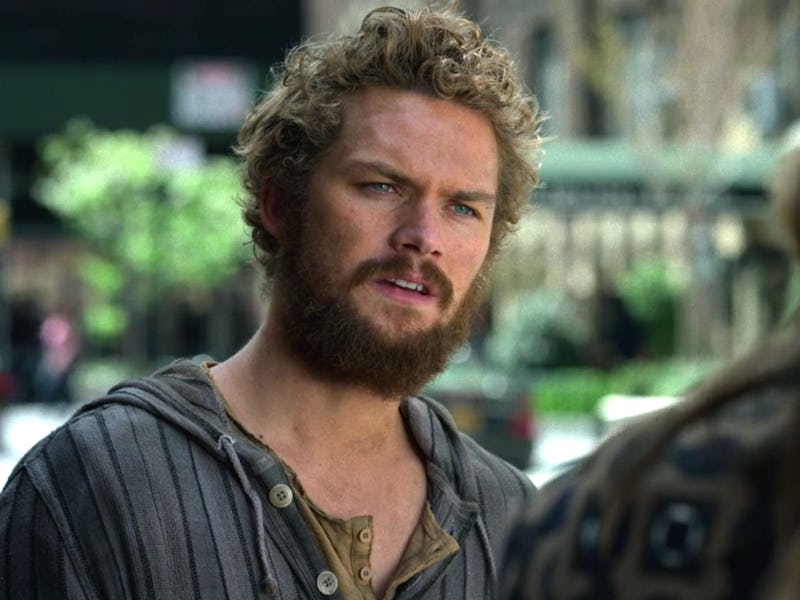Why Danny Rand's Origin Story Was Doomed to Fail
Negative reviews call out Marvel's 'Iron Fist' for whitewashing and plot, but there's a basic character reason.

Much has been said about the mistakes Marvel’s Iron Fist has made right out of the gate: the whitewashing, the pacing, the lack of vision or coherent adversary. These are all legitimate problems that Netflix’s latest superhero series suffers from, but there’s another reason it was always doomed: the way its hero is situated within its narrative.
Unlike Jessica Jones or Luke Cage, Danny Rand has an uphill battle towards relatability for the audience. Surprisingly, it’s not his status as a billionaire heir to a business empire, as Finn Jones thinks. Rather, it’s his status as someone with a vague sense of personhood because he’s recently returned to the real world from a stint in a mythical land.
Consider Netflix’s recent hit show with a similar kind of protagonist, The OA. Like Danny, Brit Marling’s character Prairie returns to her real-world community after being displaced for many years and undergoing fantastical experiences. Or not. The OA is a different and more mysterious genre, but making this specific brand of protagonist engaging is an issue that transcends genre.
While The OA was ultimately polarizing, the mixed audience response hinged upon its ending rather than its protagonist. The show was able to overcome the pitfall of a flavorless main character by surrounding her with a fascinating crop of supporting characters. Iron Fist does no such thing. Like The OA, its protagonist comes with a sense of mystery baked into his persona, but the show is unable to figure out how to divert the focus away from the fact that he doesn’t have much of a personality.
Supporting character Colleen Wing is fascinating enough to have a show of her own. But instead of using her to make Danny himself more interesting — the way The OA uses Steve for Prairie’s story — Iron Fist doesn’t have them interact in ways that shed light upon Danny. If anything, their interactions only make him less palatable. He screws around with her life and business and self-importantly explains her own craft to her.
Colleen and Danny in 'Iron Fist'
Her fascinating subplot of underground fight clubs also fails to have a meaningful impact on Danny, at least in the first six episodes made available to critics. Rather than boosting his story, it makes the viewer wish Colleen and her moral struggle about attending underground fight clubs were the focus of the show.
It’s always a struggle to create a protagonist who has an air of mystery engaging to the viewer. But if they bounce off their supporting characters in meaningful ways, the show can help them bridge the distance. Marvel’s Iron Fist doesn’t even try. Beyond its lack of a villain and the awkward whitewashing controversy, the show flubs its landing on a basic storytelling level.
Iron Fist is currently streaming on Netflix.